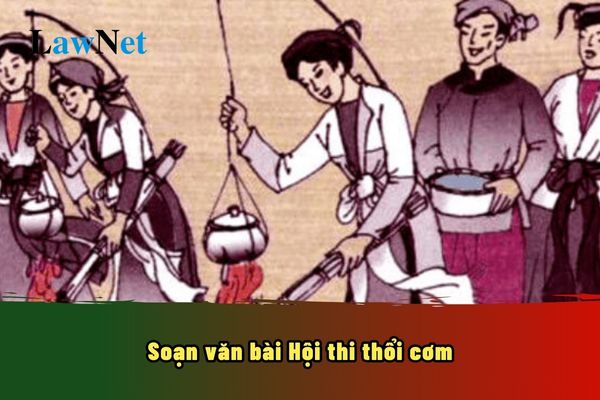Vietnam: What are the guidelines for preparing the lesson "Hội thi thổi cơm"? In 2024, what is the age of students entering 7th grade in the solar calendar?
What are the guidelines for preparing the lesson "Hội thi thổi cơm"?
7th-grade students may refer to the following sample lesson "Hội thi thổi cơm":
|
Sample lesson "Hội thi thổi cơm" 1. Main Content of the Essay |
*Note: The information is for reference only.

What are the guidelines for preparing the lesson "Hội thi thổi cơm"? In 2024, what is the age of students entering 7th grade in Vietnam in the solar calendar? (Image from the Internet)
In 2024, what is the age of students entering 7th grade in Vietnam in the solar calendar?
Under Article 33 of the Charter of lower secondary schools, upper secondary schools, and multi-level schools issued together with Circular 32/2020/TT-BGDDT, the age of secondary school students is regulated as follows:
Secondary school age
1. Children shall start the sixth grade at the age of 11 and the tenth grade at the age of 15. For students skipping a grade or over-age students, the sixth grade and tenth grade starting ages shall be adjusted based on the age at which these students graduate from the previous education level.
2. For ethnic minority students, students with disabilities, disadvantaged students and students returning to Vietnam from abroad, maximum secondary school starting age shall be 03 years older than the compulsory starting age.
3. At an education level, students may not repeat a grade more than 03 times.
4. Students with good physical capacity and early intelligence development may enter the sixth or tenth grade before the compulsory starting age or skip to the next grade within the same education level. Consideration shall be given on a case-by-case basis and in accordance with the following procedures:
a) The student’s parent or guardian submits an application to the school.
b) The school principal establishes a survey and advisory council with the following main members: representatives of school leaders and parent committee of the school; and teachers teaching the student's class.
c) The school principal considers and makes a decision based on the result of the survey conducted by the survey and advisory council.
5. Students at an appropriate age returning to Vietnam from abroad and children of foreigners working in Vietnam may enroll in local or non-local secondary schools capable of receiving them. Consideration shall be given on a case-by-case basis and in accordance with the following procedures:
a) The student’s parent or guardian submits an application to the school.
b) The school principal organizes an assessment of the student’s capacity and places them in a suitable class.
A birth year-based age table in 2024 is as follows:
| Birth Year | Lunar Age 2024 | Solar Age 2024 |
| 2000 | 25 | 24 |
| 2001 | 24 | 23 |
| 2002 | 23 | 22 |
| 2003 | 22 | 21 |
| 2004 | 21 | 20 |
| 2005 | 20 | 19 |
| 2006 | 19 | 18 |
| 2007 | 18 | 17 |
| 2008 | 17 | 16 |
| 2009 | 16 | 15 |
| 2010 | 15 | 14 |
| 2011 | 14 | 13 |
| 2012 | 13 | 12 |
| 2013 | 12 | 11 |
| 2014 | 11 | 10 |
| 2015 | 10 | 9 |
| 2016 | 9 | 8 |
| 2017 | 8 | 7 |
| 2018 | 7 | 6 |
| 2019 | 6 | 5 |
| 2020 | 5 | 4 |
| 2021 | 4 | 3 |
| 2022 | 3 | 2 |
| 2023 | 2 | 1 |
Thus, according to the Solar calendar of 2024, 7th-grade students are 12 years old.
Note: except for students subject to grade repetition, students allowed to skip grades, or students attending school at ages older/younger than prescribed.
What are the 05 core traits of 7th-grade students in Vietnam?
Under the General Education Program issued with Circular 32/2018/TT-BGDDT, the 5 core traits of 7th-grade students as follows:
(1) Patriotism
(2) Compassion
(3) Diligence
(4) Honesty
(5) Responsibility
See the Appendix of the General Education Program issued with Circular 32/2018/TT-BGDDT: Download (Note: Some content in this file is amended by Articles 1 and 2 of Circular 13/2022/TT-BGDDT).

